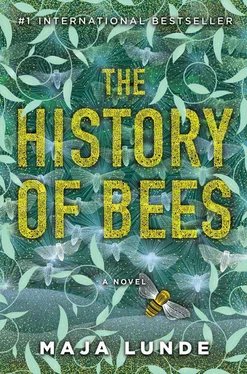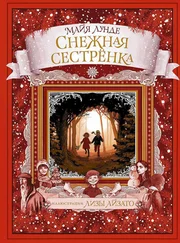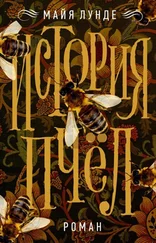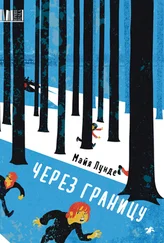An ambulance arrived in a few minutes. As they came driving up the dust swirled up from the dry road and settled into Wei-Wen’s hair, on his shoes, in his eyelashes. The personnel dressed in white came running out. Carefully they lifted him out of Kuan’s arms and took him with them. His arm hung limply, slung out of the grasp of one of the personnel in white. That was the last thing we saw. Kuan and I were led into the car, but not in the back with him, they put us up front. Somebody reminded us to put on our seat belts.
Seat belts. What did we need those for?
Iwoke up an hour and twenty-two minutes before the alarm went off. The bedclothes were sweaty. I threw off the duvet, but knew that it was impossible to fall asleep again. It was the day for the quality control of the hives, the first inspection after the winter. I often slept poorly before this day, my head was way inside the hives. Beeswax, boards and larvae occupied my thoughts. I had no idea what I’d find when I opened them, had experienced winter death of close to 50 percent. And that feeling, when you discover that there are neither larvae nor queen bees in almost half of the hives, it’s horrible. But the winter had been normal, nothing worth mentioning there. Not especially cold or warm, no reason anything should be out of the ordinary.
Nonetheless, I was shaking as I stood waiting for Rick and Jimmy. I had asked them to get here by seven thirty. I just wanted to get started. I would have preferred to have started already, but it was a tradition we had, the three of us, that the first quality control day we met here in the yard, we talked, we drank.
Rick arrived first, as always. He was tall and skinny, not properly put together—he looked a little like James Stewart, just without the winning face. Long, sharp nose, eyes that were set deep into his skull, thinning hair, even though he wasn’t even thirty years old. He struggled out of the car. Rick always moved ten times more than he needed to, regardless of what he was doing, his whole body was badly organized. But he was eager. Had taken a mail-order agricultural course, and read a lot, all the time. No matter what we were going to do Rick could give us the background on it. And the history. And the theories. It was like dropping a coin in a machine. The man was a regular anecdote vending machine. He dreamed about a farm of his own, but truth be told, he should have been dreaming about sitting behind a desk and using his head.
He stood there swinging his arms; as usual he couldn’t stand still.
“So,” he said.
“So,” I said.
“Do you have any thoughts about how things are?”
“No. Good? Just fine. No reason to think otherwise.”
“No. No reason.”
He wrinkled his forehead, tugged at his thinning hair. “. . . Well.” He was scratching himself with both hands now, you’d think he had lice. “You never know.”
“No. You never know. But with the past winter…”
“Yes. Clearly…”
“Yes.”
“But then there’s those disappearances.”
“Ah. Those.”
I acted as if I hadn’t thought about it. But of course I had. I kept myself informed. Even The Autumn Tribune had mentioned the mysterious colony collapses that a number of beekeepers down south had experienced. In November a guy in Florida reported beehives that were suddenly empty. David Hackenberg was his name. Suddenly everyone was talking about what happened on his farm. And since then, new reports kept coming in all the time from Florida, California, Oklahoma and Texas.
It was the same story every time. Healthy beehives one minute, enough food, larvae, everything perfectly fine. Then, in a matter of days, in a matter of hours, the hive was as good as empty. The bees were gone, abandoning their own larvae, leaving everything. And they never came back.
Bees are clean animals. They fly away to die, not wanting to leave their remains behind to contaminate the hive. Perhaps that was what they’d done. But the queen always stayed behind with a small cluster of young bees. The worker bees left the mother and her young, left them to die alone in the hive. It was contrary to the laws of nature.
Nobody really knew why. The first time I heard about it, I thought it was because of poor beekeeping. That this Hackenberg hadn’t taken proper care of his bees. I’d met many keepers over the years who blamed others when they themselves were actually to blame. Too little sugar, too warm, too cold. It wasn’t exactly quantum physics we were working with. But after a while there were too many stories, too similar and too sudden. This was something else.
“That’s only in the south,” I said.
“Yes. They run more intensive operations down there,” Rick said.
At that moment Jimmy’s green pickup skidded into the yard. He got out of the truck wearing a big grin. While Rick was worried, thought too much, Jimmy was the cheerful, simple, opposite. Not a single extra movement, not one turn of the wheels in his head that wasn’t absolutely necessary. But he worked hard; you had to give him that.
What Jimmy lacked on the inside he made up for on the outside. He was handsome in a high school kind of way. Blond, thick bangs, a cleft chin, powerful jaw, the right proportions. He should have worn a football uniform around the clock. And he took good care of his appearance, too. Always freshly ironed and groomed. But it was unclear who he was dressing up for—there were never any women in the picture.
In his hand he held a thermos. A new one for the occasion, I noticed. The shiny steel reflected the sunlight for a second, blinded me momentarily, until he held it at another angle.
Each of us took out our cups. Jimmy had bought them a few years ago. Small, green hunter’s cups from the outdoor living department at Kmart that could be squeezed flat. Rick and I pressed out the cups at the same time and held them out to Jimmy. Without a word he opened the thermos.
“Fresh-ground beans,” he said and poured.
I was first.
“Colombia. Dark, roasted flavor.”
Could have just as well been instant for all I cared. Coffee was coffee. But for Jimmy coffee was probably the closest he came to art. He bought beans over the Internet. The beans had to be fresh. In his opinion, preground coffee was considered the work of the devil. And then the coffee had to drip at the right temperature. To achieve this, he had invested in a European coffeemaker, a drip-brew machine that was stuck in customs for weeks before he could finally bring it home.
We raised and knocked the three cups together. Soft plastic hit soft plastic, almost without a sound. We each took a sip.
Then came the moment when we were supposed to praise the coffee, say something intelligent. It was a part of the routine. For appearances’ sake I squinted, while I swirled the coffee around in my mouth, like some wine expert.
“. . . rich… full.”
“Mm,” Rick said. “I can taste the roast, yes.”
Jimmy looked at us expectantly, like a child on the Fourth of July. Waiting for more.
“Yes, sir, nothing like instant,” I said.
“Best coffee this year,” Rick said.
Again Jimmy nodded. “Just buy yourself a grinder and be sure to get good beans. Even you two can manage it at home.”
He always said that and knew perfectly well that we would never drag a coffee grinder over our doorsteps. At home it was Emma who made the coffee. And she went for freeze-dried. Lately she had tried out some dull-as-dishwater stuff with powdered milk and sugar added, but I stuck to black.
“Did you know that the earliest reference to coffee is from a fifteen-hundred-year-old story from Ethiopia?” Rick said.
“No kidding, you don’t say,” Jimmy said.
Читать дальше









